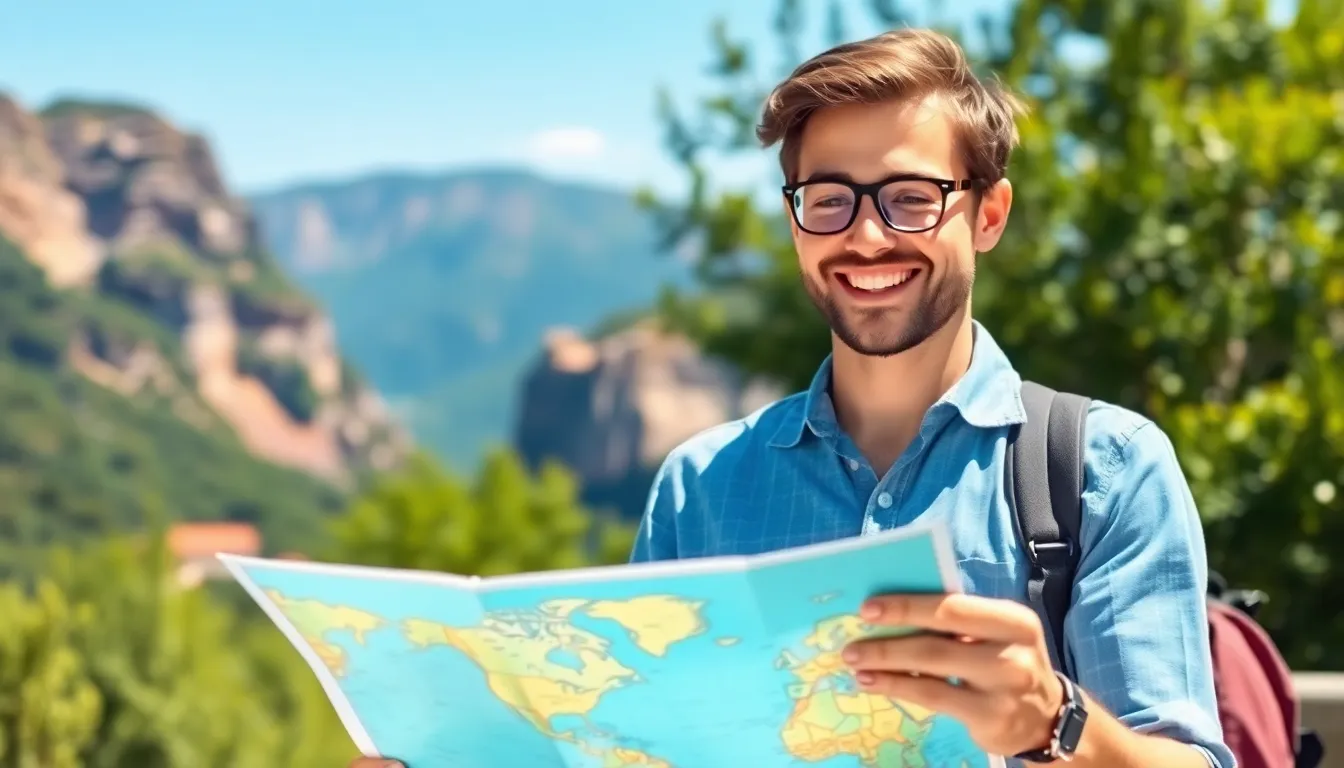Traveling opens up a world of adventure, but it can also feel like navigating a game of dodgeball in a crowded gym. With unexpected twists and turns, it’s essential to arm yourself with the right knowledge to ensure smooth sailing—or flying. After all, nobody wants their vacation to turn into a reality show episode titled “When Travel Goes Wrong.”
Have A Safe Travel
Safe travel protects physical well-being during trips. Prioritizing safety reduces the risk of accidents and injuries. Awareness of local laws and customs fosters respect and enhances the travel experience. Staying informed about health advisories can prevent illnesses.
Planning for emergencies, such as having emergency contacts handy, minimizes panic. Understanding potential hazards in new environments prepares travelers better. Familiarizing oneself with transportation options promotes safer passage.
Packing essential items, such as first-aid kits and necessary medications, supports health and safety. Following travel advisories from authorities ensures a smoother journey. Researching accommodations for safety features contributes to peace of mind.
Staying connected with friends or family provides an added safety layer. Establishing a routine for checking in maintains awareness. Engaging with locals can yield valuable safety tips and insights.
Cultivating situational awareness helps in identifying potential risks. Observing one’s surroundings fosters an understanding of safe areas and unsafe areas. Mindful decision-making during travel scenarios enhances protection.
Overall, safe travel encompasses more than just avoiding danger; it enhances enjoyment and reduces stress. By prioritizing safety, travelers can navigate their adventures with confidence, ensuring memorable experiences that are enjoyable rather than chaotic.
Essential Tips For Safe Travel

Focusing on safety fosters enjoyable travel experiences. Follow these essential tips to enhance trip security and minimize risks.
Planning Your Trip
Utilize reputable resources to research destinations. Check travel advisories to stay informed about potential hazards. Create an itinerary detailing activities and transportation. Understand local laws to avoid unintended violations. Share travel plans with friends or family for accountability. Remain flexible to changes in weather and conditions that may arise during the journey.
Packing Essentials
Include first aid kits, ensuring access to basic medical supplies. Bring any necessary medications and keep them in original containers. Pack travel insurance documents for emergencies. Consider keeping copies of important documents like passports and itineraries. Always have a portable phone charger to maintain communication. Select clothing that adapts to varying climates for comfort.
Booking Accommodations
Choose accommodations with positive reviews that prioritize guest safety. Research locations in relation to attractions and local security. Confirm that properties have security measures like locks and surveillance. Contact hotels directly for any specific concerns before arrival. Utilize flexible booking options to adapt to unexpected situations easily. Keep emergency contact information readily available at your accommodations.
Staying Safe During Travel
Travelers must prioritize safety to ensure enjoyable experiences. By remaining vigilant and informed, they can minimize risks while exploring new destinations.
Transportation Safety
Utilizing reputable transportation options significantly enhances safety. Taxi services should be booked through trusted apps or well-known companies. Always check vehicle identification and confirm the driver’s credentials before entering. Public transport can be safe but entails awareness of one’s surroundings. Avoid displaying valuables in crowded areas to deter theft. Seatbelts must be worn in vehicles to reduce injury risks. Familiarizing oneself with routes and schedules ensures better navigation and prevents last-minute stress.
Health Precautions
Researching health advisories is crucial before embarking on any trip. Travelers must stay updated on vaccinations and potential health risks related to their destinations. Packing a comprehensive first aid kit, along with necessary prescriptions, aids in handling minor medical situations. Staying hydrated and practicing good hygiene helps prevent illness during travels. Food safety should not be overlooked; choose reputable dining establishments to avoid foodborne illnesses. Monitoring personal health and knowing local emergency contacts fosters preparedness in case of unforeseen health issues.
Travel Insurance: Why It Matters
Travel insurance provides critical protection against unpredictable events that can occur during a trip. This safety net covers medical emergencies, trip cancellations, lost luggage, and unexpected delays. Choosing the right travel insurance ensures financial security, allowing travelers to focus on enjoying their experiences rather than worrying about potential mishaps.
A variety of policies exist, each tailored to specific needs. Comprehensive plans often include medical coverage, emergency evacuation, and even trip interruption benefits. Opting for insurance that fits the trip’s unique circumstances enhances peace of mind. Travelers should review policy details to understand what’s covered and any exclusions.
In some cases, travel insurance proves vital during emergencies, especially when traveling abroad. Medical expenses can accumulate quickly in foreign countries. Without adequate coverage, travelers may face exorbitant bills or be unable to receive necessary care. Coverage options that include 24/7 assistance can simplify navigating healthcare systems in unfamiliar places.
Travelers also benefit from cancellation insurance. Flight delays, severe weather, or personal emergencies can disrupt planned itineraries. This type of coverage mitigates financial loss when unexpected changes arise.
Lastly, obtaining travel insurance before departing provides an extra layer of security. Comparing different providers ensures travelers select a policy that meets their requirements. Investing in appropriate coverage can significantly enhance the overall travel experience, allowing for greater enjoyment and reduced stress during journeys.
Conclusion
Traveling can be one of life’s greatest joys but it’s essential to prioritize safety throughout the journey. By staying informed and prepared travelers can navigate unexpected challenges with confidence. Utilizing reputable resources for research and planning can significantly enhance the travel experience while minimizing risks.
Packing essential items and maintaining communication with loved ones adds an extra layer of security. Choosing accommodations and transportation wisely further ensures a safe environment. With the right precautions in place travelers can focus on creating unforgettable memories, making each adventure enjoyable and enriching. Safe travels lead to the best experiences, allowing everyone to explore the world with peace of mind.



